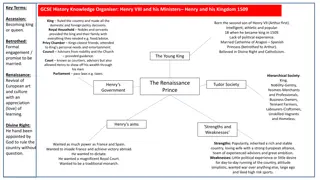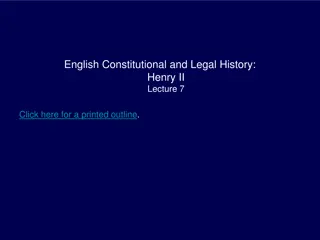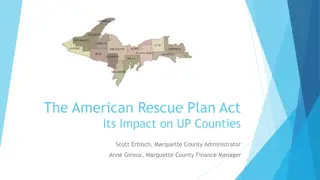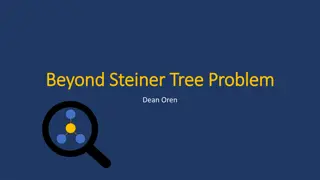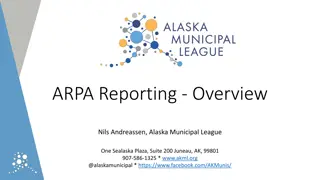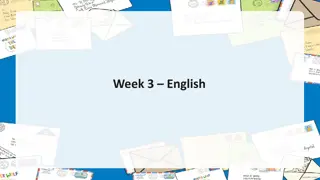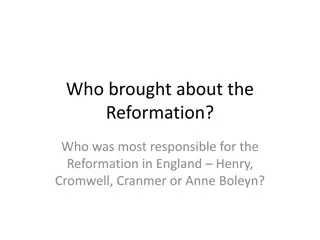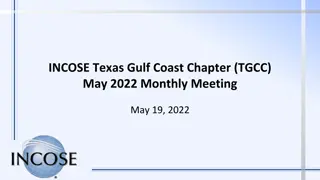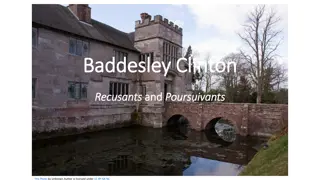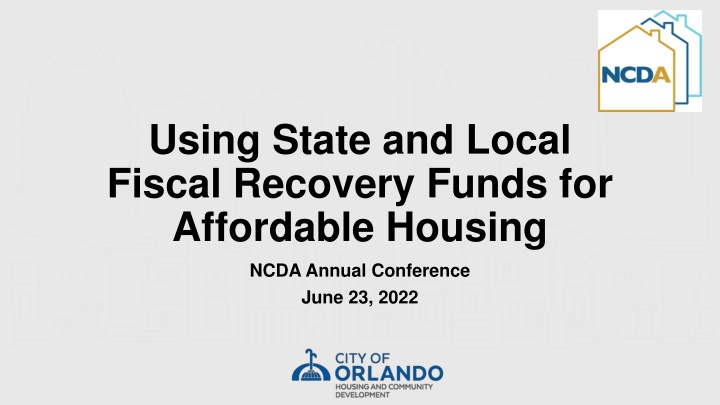
Using State and Local Fiscal Recovery Funds for Affordable Housing at NCDA Annual Conference
Learn how the City of Orlando is utilizing State and Local Fiscal Recovery Funds to address community issues such as homelessness, affordable housing, broadband access, economic opportunity, and downtown revitalization. Discover the distribution plan priorities and the flexibility provided by the SLFRF program.
Download Presentation

Please find below an Image/Link to download the presentation.
The content on the website is provided AS IS for your information and personal use only. It may not be sold, licensed, or shared on other websites without obtaining consent from the author. If you encounter any issues during the download, it is possible that the publisher has removed the file from their server.
You are allowed to download the files provided on this website for personal or commercial use, subject to the condition that they are used lawfully. All files are the property of their respective owners.
The content on the website is provided AS IS for your information and personal use only. It may not be sold, licensed, or shared on other websites without obtaining consent from the author.
E N D
Presentation Transcript
Using State and Local Fiscal Recovery Funds for Affordable Housing NCDA Annual Conference June 23, 2022
Speaker Oren J. Henry Director of Housing and Community Development City of Orlando, Florida oren.henry@orlando.gov
Background The State and Local Fiscal Recovery Funds (SLFRF) program, part of the American Rescue Plan, provides governments across the country with resources to: Fight the pandemic and support families and businesses struggling with its public health and economic impacts Maintain vital public services, even amid declines in revenue resulting from the crisis Build a strong, resilient, and equitable recovery by making investments that support long-term growth and opportunity
Background Recipients may use SLFRF funds to: Replace lost public sector revenue Respond to the far-reaching public health and negative economic impacts of the pandemic Provide premium pay for essential workers Invest in water, sewer, and broadband infrastructure Substantial flexibility is provided for each jurisdiction to meet local needs within these four separate eligible use categories
City of Orlando Receiving $58 million Funds must be obligated before December 31, 2024 Projects must be completed and funds spent by December 31, 2026
City of Orlando After consultation with Treasury Officials, City Officials determined Orlando legally qualifies to use SLFRF to offset reduction in net tax revenue Leadership determined 100% of SLFRF would go towards addressing community issues
City of Orlando Distribution Plan is being developed with a focus on supporting the following priorities: Homelessness Affordable housing Broadband access Economic opportunity Downtown revitalization
City of Orlando As SLFRF have now become City General Funds, they have shed the various commitment and expenditure deadlines and other Federal requirements, but will still meet income qualifications
City of Orlando To date the City has programmed $4 million for initiatives to prevent gun violence and a job training program for people unemployed or underemployed due to COVID-19 Community Violence Intervention Program RISE Employment & Training Program
City of Orlando The bulk of the remaining funds will go towards projects, programs and initiatives to address Homelessness Affordable housing
City of Orlando City Staff is working on a formalized plan Types of projects we are recommending: Daytime services Mental health treatment Affordable housing for single women and families Hotel conversion to affordable housing Vacant property acquisition for affordable housing development Single-family infill homes Down payment assistance (DPA) and housing counseling Housing rehabilitation
Daytime Services Funds may be used to renovate existing non-profit facilities to provide: Access to immediate employment Medical care via mobile unit Meals Laundry Mail service Clothing Coordination for shelter/housing Case management
Mental Health Treatment Funds may be used to renovate existing non-profit facilities to offer residential treatment in a structured and supervised live-in environment, 24/7
Affordable Housing Funds may be used to develop a new women and children s facility to provide: Shelter Daycare Kitchen Cafeteria Day services
Hotel Conversions Funds may be provided to private and non-profit entities to convert hotels into affordable housing units including permanent supportive housing
Property Acquisition Funds may be used to purchase land to facilitate new construction of affordable housing, including: Acquisition Demolition Environmental clean-up
Single-Family Infill Homes Funds may be used to purchase land to facilitate new construction of single-family infill homes, including: Acquisition Demolition Environmental clean-up Construction of new infill housing
DPA/Housing Counseling Funds may be used to provide down payment assistance and housing counseling to eligible, low-income families to purchase homes, including those in a land trust
Housing Rehabilitation Funds may be used to supplement existing housing rehabilitation programs to: Increase number of rehabilitated homes Increase number of repairs, specifically roofs
Items of Importance Coordination with other financial resources Administrative accountability Contingency for overruns Evaluation
Questions? Contact: Oren J. Henry orlando.gov/housing oren.henry@orlando.gov


